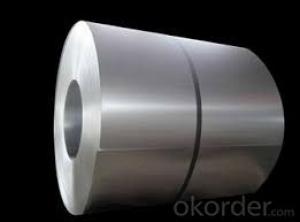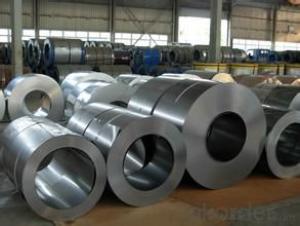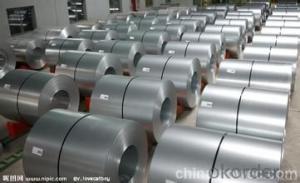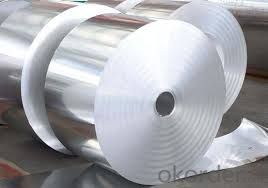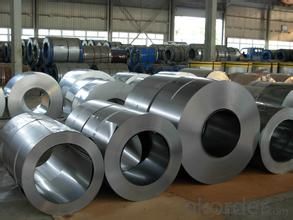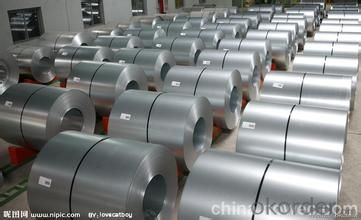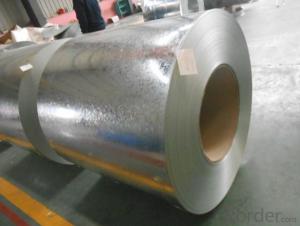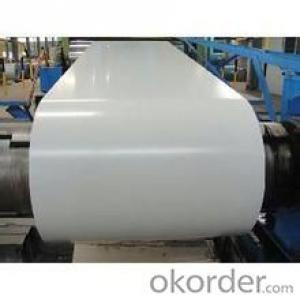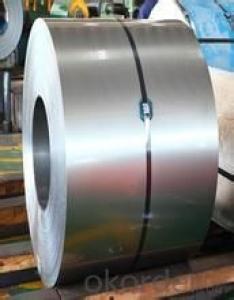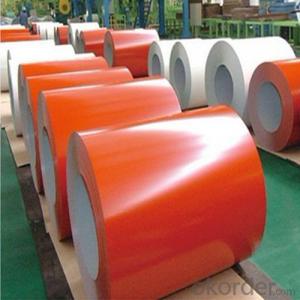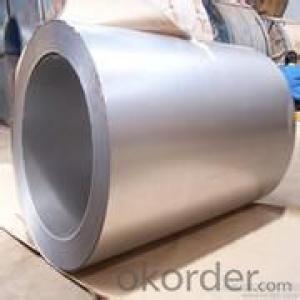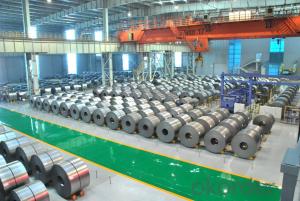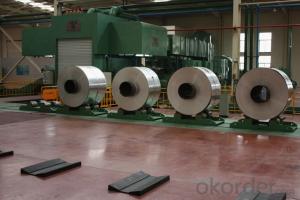Excellent Cold Rolled steel Coil- -SPCG
- Loading Port:
- Tianjin
- Payment Terms:
- TT OR LC
- Min Order Qty:
- 100 m.t.
- Supply Capability:
- 5000000 m.t./month
OKorder Service Pledge
OKorder Financial Service
You Might Also Like
Description:
Quality of the goods could be guaranteed. The finished product has a variety of excellent capabilities, such as continuous rolling, degreasing, annealing, skin pass, slitting and cut to length line etc. Along with it many rocessing capability and smooth, flat surface. It’s widely used in outdoor and interior decoration, furnishing
Specification:
COLD ROLLED STEEL | |
Thicknenss | 0.10mm-4.00mm |
Width | 600mm-2000mm |
Sheets length | 1200-6000mm |
Coil inner diameter | 508-610mm |
Surface treatement | matt finish/bright finish,oiling/dry, bright anneal/black anneal |
Coil weight | 3-5t |
Application:
Widely used in electronic production, Motorbike, Automobile, Stamping structure; Cold bent Steel; Saw flake and etc; which is a good substitute for cold Roller and Cold plate in many field.
Images:
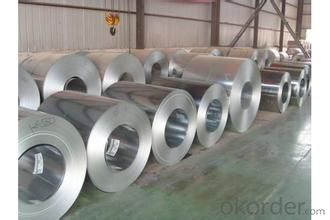
Package & Delivery
Package details: Standardseaworthy packing for international delivery.
Delivery: According to theexact quantity of your order.
Our products enjoy an excellent reputation and have been exported to Europe, South-America, the Middle-East, Southeast-Asia, Africa and Russia etc.. We sincerely hope to establish good and long-term business relationship with your esteemed company.
- Q: How do steel coils contribute to seismic resistance in structures?
- Steel coils contribute to seismic resistance in structures by providing strength and flexibility. The coiled shape allows the steel to absorb and dissipate the energy generated during seismic events, thereby reducing the impact on the structure. This increased flexibility helps prevent the structure from collapsing under the stress of seismic forces, making it more resistant to earthquakes.
- Q: What are the common challenges in steel coil manufacturing?
- There are several common challenges in steel coil manufacturing that manufacturers often face. One of the major challenges is maintaining consistent quality throughout the manufacturing process. Steel coils need to meet specific specifications and standards, and any deviation from these can lead to product defects or rejections. This requires careful monitoring and quality control measures at each stage of the manufacturing process. Another challenge is ensuring efficient production and minimizing downtime. Steel coil manufacturing involves several complex processes, including cutting, forming, welding, and finishing. Any issues or delays in these processes can result in production bottlenecks, which can impact the overall efficiency and productivity of the manufacturing facility. Additionally, handling and storage of steel coils can pose challenges. Steel coils are heavy and can be difficult to handle, requiring specialized equipment and proper training for workers. Moreover, proper storage conditions need to be maintained to prevent damage from moisture, corrosion, or other environmental factors. Maintaining a safe working environment is also a challenge in steel coil manufacturing. The equipment and machinery used in the manufacturing process can be hazardous if not operated and maintained properly. Ensuring the safety of workers and implementing appropriate safety protocols is crucial to prevent accidents and injuries. Lastly, fluctuating raw material costs and market demands can present challenges for steel coil manufacturers. The cost of raw materials, such as iron ore and scrap metal, can significantly impact the profitability of the manufacturing process. Additionally, market demands for specific types of steel coils may change, requiring manufacturers to adapt and adjust their production accordingly. In conclusion, common challenges in steel coil manufacturing include maintaining consistent quality, achieving efficient production, handling and storage issues, ensuring a safe working environment, and dealing with fluctuating raw material costs and market demands. Overcoming these challenges requires careful planning, continuous improvement, and effective management of resources and processes.
- Q: A song by brokencyde is called Blue Steel.... a verse in it says Don't make me show you blue steel.
- Blue okorder /
- Q: Can solution annealing be done on carbon and low alloy steels. please give an explanatory answer.
- No. Carbon steel has two different crystal structures, FCC and BCC , depending on the temperature. when you heat steel up and then quench it, it locks the crystal structure into the BCC form. this makes it hard. whereas precipitation hardened austentic stainlesses remain BCC regardless of the temp, so the hardness change is not a function of thermally induced strain. you can anneal carbon steel but the thermal profile is closer to the precipitation profile of PH stainlesses than it is to the Solution annealing profile.
- Q: I am doing an assignment for my materials class, im not asking for the answer but just some help. I have the assignment finished and handed in but the teacher gave it back with one comment, he asked me to explain the grain growth in steel during hydraulic press bending. Im completely stuck, please help. Thanks.
- Well, I can't answer the question for you because, if the press bending is done cold, the grains will not grow (at least not with normal steel alloys). One wonderful thing about metallurgy is that the real answer is it depends because there are all sorts of weird and unexpected things that can happen. Cold work (which is what press bending is unless it is done hot or the amount of deformation is extraordinary high and fast so the metal heats up a lot locally) adds stored energy (strain energy) which provides one of the driving forces for recrystallization. Recrystallization is not a yes/no process, it is a process that happens as a function of time and temperature. Recrysallization of a cold worked structure will refine the grain size if done properly but the final stage of recrystallization is grain growth and you can end up with a larger grain size than you started with. The other thing that can affect grain structure is the deformation itself. There are all sorts of transformations that can happen due to the deformation process (twinning/martensitic is one) but, again, these don't usually qualify as grain growth. It may be that the question was incomplete, maybe the question is how does the press bending affect the final grain size after a subsequent anneal? The metallurgy of steels is fascinating because there are so many different microstructures that can be produced, hundreds (or thousand) different alloys, equilibrium and non-equilibrium phases based on composition and thermo-mechanical processing. Hope this helps
- Q: What are the main factors to consider when selecting a steel coil supplier?
- When selecting a steel coil supplier, some of the main factors to consider include the supplier's reputation and experience in the industry, the quality and consistency of their products, their ability to meet your specific requirements and timelines, their customer service and support, as well as their pricing and overall value proposition.
- Q: How are steel coils used in the production of steel cables?
- Steel coils are used in the production of steel cables by being uncoiled and straightened, then fed into a machine that twists and braids them together to create the cable.
- Q: Alright...Please tell me what I can and can't buy for Steel Legion in detail(Much Detail please)Ogryns.Las canons.The problem I'm having is that they don't have steel Legion Uniform..does it matter?1.I also heard that you can't use Commisar Yarrick.(So what could I use?)2.What are my Hq choices,Fast attack,Heavy Support,Elite etc.3.Steel Legion has a Commisar....(Do I buy one for each squad of Steel Legion or one?)Please in detail what should I buy...I don't have the codex yet but will soon!!4.I also heard that if I get Steel Legion I need a transport for everything?(Is this true?)5.Please be detail on what i can't and can buy!!(Please like HQ Squad leader,Sargent)
- here are a couple of things about the steel legion. you should have a lot of mechanized units, have chimaras for rvery squad if posible, artillery fire helps a hell of a lot. also sentinals and leman russes and hell hounds also help. if in apocolypse, use banblades and titans. storm trooper squads should be your base squadrons. put them in chimeras and get near the action, drop 'em off and rapid fire like CRAZY!!! the steel legion loves heavy weapons so remember to get some heavy weapons platforms. there favourite weapons are grenade and missle launchers. there is also an officer you can buy with a power sword with the steel legion look. steel legion are big xeno hunters. because commisar is a ork killer you should be allowed to field him. ratling/ sniper squads also help and if you can get a vindicare assassin that is very useful.
- Q: How do steel coils perform in corrosive environments?
- Steel coils typically perform well in corrosive environments due to their inherent resistance to corrosion. This is primarily because steel is an alloy composed of iron and other elements, such as carbon, which provides it with a protective layer known as a passive film. This passive film acts as a barrier between the steel surface and the corrosive elements, preventing direct contact and thus minimizing the risk of corrosion. In addition to the passive film, steel coils can also be coated with various protective coatings to enhance their resistance against corrosion. These coatings, such as zinc or epoxy, provide an additional layer of protection and further extend the lifespan of the steel coils when exposed to corrosive environments. However, it is important to note that the performance of steel coils in corrosive environments can still be influenced by factors such as the specific corrosive agent, exposure duration, and the presence of other contaminants. In highly aggressive environments, such as those with high humidity, saltwater exposure, or acidic chemicals, the protective layers on steel coils may deteriorate over time, leading to potential corrosion. To ensure optimal performance in corrosive environments, it is advisable to select steel coils with corrosion-resistant properties, such as stainless steel or galvanized steel. Regular maintenance and inspections are also crucial to identify any signs of corrosion early on and take appropriate measures to prevent further damage. Overall, steel coils offer good resistance to corrosion in most environments, but the severity of the corrosive conditions can ultimately impact their performance.
- Q: Perform three sets of 15 repetitions several times a week and you will soon have buns of steel.
- Means you will have a nice booty, but the true question is... What does Buns of Steel mean by several times and SOON? Good luck.
Send your message to us
Excellent Cold Rolled steel Coil- -SPCG
- Loading Port:
- Tianjin
- Payment Terms:
- TT OR LC
- Min Order Qty:
- 100 m.t.
- Supply Capability:
- 5000000 m.t./month
OKorder Service Pledge
OKorder Financial Service
Similar products
Hot products
Hot Searches
Related keywords
